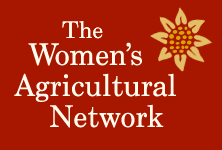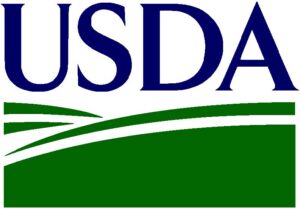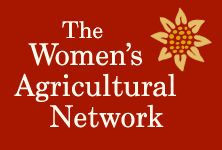I could barely contain an excited squeal (yes—squeal) as I waited for the awards to be announced. I knew in my heart that one of my teams would be named Team of the Year. I say “my” teams without a valid sense of ownership. They and their teacher did the hard work. I had only met these kids twice, once before and today, but still…I was rooting for them.
It started about a year ago, when the Pasture Program was contacted by the VT Envirothon Current Issues coordinator. Envirothon is a national environmental competition where high school students compete in four standard categories (aquatics, soil, forestry, and wildlife) and one current issue which changes each year. We were contacted because the national program had chosen “Sustainable Rangeland Management” as the issue, which in Vermont is quickly translated to rotational grazing. Naturally, we jumped on the chance to teach high school students about the benefits of pasture!
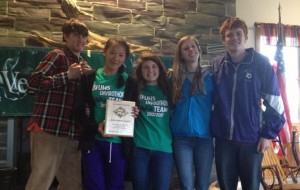
Bellows Falls Envirothon Team B won this year’s Current Issue: Sustainable Grassland Management. They are working with a farm family seeking to improve its land management after severe flooding damage from T.S. Irene.
The Current Issue represents a problem or challenge that the students must learn about in order to make recommendations for improvement. There’s a lot of work involved. In this case each participating school had to pick a farm with livestock, meet the farmer and learn about their goals and challenges, make maps describing the farm system, understand what is working well or needs improvement, and make recommendations to address those challenges. My colleague Kimberly Hagen and I shared educational materials and resources for the teams, connected schools with farms, answered emails, delivered presentations during a training day, and worked with teams directly when invited. Today was the culmination of that year, where the students made presentations at the state competition.
All day, I was struck by the hard work every student had done to learn more about good pasture management and the farmers themselves. Their creativity in drawing, performance of short skits and descriptions of technical information were simply inspiring. We were impressed with the range of farms they chose to work with, from a two-horse farm to a 700-cow dairy, and with the affection and appreciation they clearly held for their farmers. Multiple teams stated an intention to return to the farm to help the farmer implement some of the practices they’d recommended (and one team already had). I could not have been happier or prouder of the students. Whether they become future environmental stewards, farmers, consumers, or all three…they will clearly do so with a greater understanding of how good land management and food production go hand in hand.
Driving home, I spent some time ruminating on what this type of event means to me, as a woman farmer. Whether hosting elementary school kids at the farm, visiting a classroom at school, rooting for a whole lacrosse team, or keeping your fingers crossed for some kids you barely know, there is something buried deep inside that says, “if you succeed, we all succeed, the world succeeds.” Maybe there’s some connection with kids that we naturally feel. After all, for thousands of years women have been the keepers of the community web.
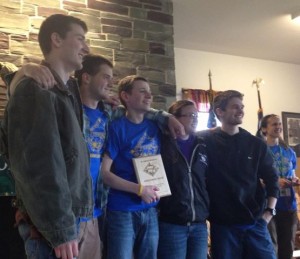
Bellows Falls Envirothon Team A won Team of the Year. They will be competing in Montana later this summer to represent Vermont nationally.
This is consistent with recent and historical national volunteer data and even data collected about VT grass-based farms in 2011, where women participated at a higher rate than men in all nine social activity categories.
Genetic predisposition, or not, I held my breath for a few moments today. A team of extremely bright high school students are off to compete in the National Envirothon this summer, and 70 other kids represent shining examples of Vermont’s agricultural and environmental future. Congratulations, every one!

